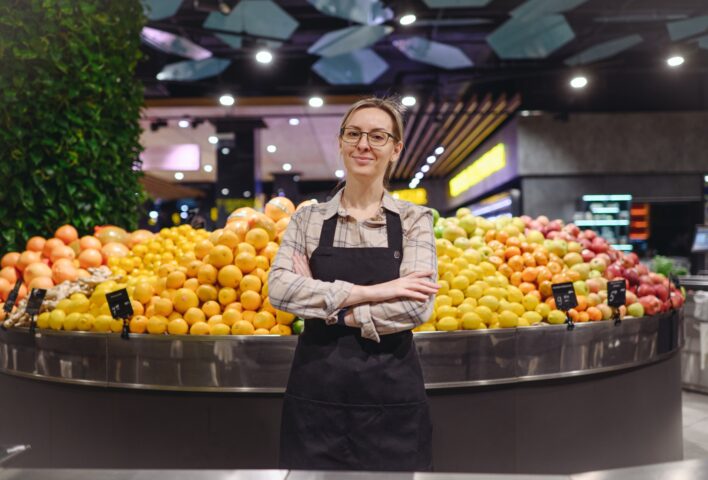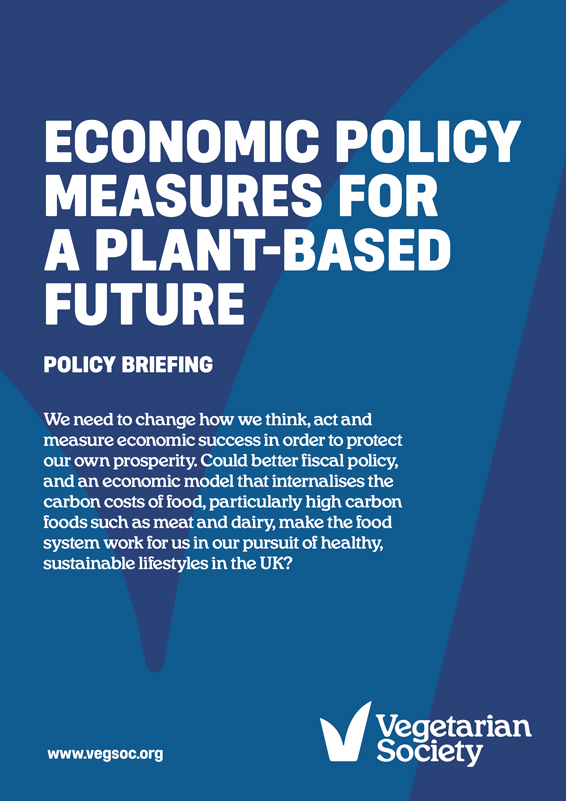Costing Carbon
COSTING CARBON:
Economics for a Plant-Based Future

Why is this important?
Because many people cite price as a major barrier to purchasing sustainable plant-based products, and the relatively high price of fruit and vegetables creates a barrier to health as well as sustainability.
If we internalised the carbon and health costs of food into pricing and recycled proceeds to subsidise low carbon and healthy options, we could overcome this barrier and drive-up consumption, which in turn would secure growth in the means of production on farms and in manufacturing.
What needs to happen?
It was the economist Lord Stern who once commented that: “Climate change is a result of the greatest market failure the world has seen” and the question of how to reverse this failure has since become a critical focus for fiscal policy makers. Could the market be made to work in a positive way, to avert climate change? In particular, could better fiscal policy make the food system work for us in our pursuit of healthy, sustainable lifestyles in the UK?
It may seem contentious now but we firmly believe carbon taxes on high-carbon food is a ‘no-brainer’, akin to current vehicle tax measures which tax carbon emissions from combustion engines.
And, with food system emissions standing at 35% of overall UK emissions, the government and UK food sector urgently need to be leading on the transition from unsustainable consumption patterns, especially with regard to high carbon foods such as meat.

We therefore believe that the question of how to adjust production and consumption levels of high carbon foods must be addressed if the UK is to prosper sustainably. Proposed mechanisms for internalising the carbon costs of food aim to distribute positive pressure evenly across the piece and possible measures might include:
- adjustment to farming subsidy
- contract price incentives between farmer and food industry
- consumer taxation models.
And given that addressing consumption habits are at the crux of reducing the UK’s climate impact, the consumer taxation angle deserves closer attention.
But a reformed tax and subsidy system could also consider how better outcomes for both our climate and human health might be achieved. The development of a dual tax system that links health and environmental impact is potentially a highly effective way to address carbon emissions and improve the quality of diets. It also addresses issues that affect the cost of living and quality of life, giving consumers at once choices that are healthier, and also more affordable too.
The synergy between tax and subsidy should be the essential fiscal mechanism in this area, with revenue from transition taxes, both environmental and health, being redirected to support subsidy of healthier low carbon options that are currently price-disadvantaged in the market. The health savings for citizens, not to mention the health budget, are likely to be substantial.
Of course, the key to managing this kind of reform to taxation and subsidy is public buy-in, which in turn will require effective communication of the changes and intended outcomes.
People also have been found, in general, to be more receptive to tax reform when the rationale is explained to them. And clearly when fiscal measures offer such a powerful tool for tackling both problems, every effort should be made to engage the country in a conversation about measures that will help the country manage these two major convergent crises.
What is the Vegetarian Society doing?
The Society aims to play a key role in championing changes to the UK’s tax and payments system aimed at securing a low carbon food system. In particular, we will be undertaking research and developing policy focused campaigns, which seek to:
- Expand the successful sugar tax model to high carbon foods encompassing health metrics for limiting sodium, saturated fat and metrics for enhancing fibre and 5 A DAY intake
- Re-examine the policy potential for fruit and vegetable subsidy in the recently abandoned plan for a DEFRA UK Horticulture Strategy
- Develop an on-farm metrics set for carbon and environmental taxation based on frameworks detailed in publications such as the Land Use Policies for Net Zero UK (CCC 2020)
DOWNLOAD OUR POLICY BRIEFING
If you would like more information on our work , please download our policy briefing titled: “ECONOMIC POLICY MEASURES FOR A PLANT-BASED FUTURE.“

